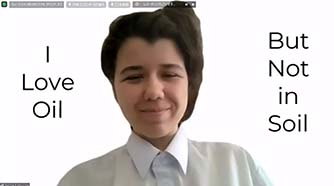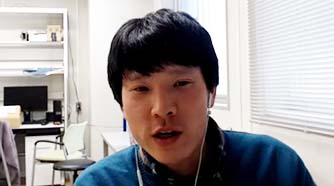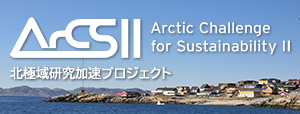

| Date & Time | Tuesday, February 28, 2023, 15:00-16:30 |
| Method | Online | Participant | 17 people |
| Lecturer1: Zarina Bikmullina (Graduate School of Environmental Science) Presentation Title: Changes of fraction composition of petroleum in upper horizons of Arctic tundra soil with different periods after pollution termination Abstract: Petrochemical contamination is a challenging issue in Arctic region. In this study, we took an attempt to understand some features of degradation of oil compounds with different properties in soils. It was found that relative abundance of non-polar or slightly polar compounds with low molecular weight decreases with time, but maltenes fraction stays almost unaltered for more than 30 years. |
|
| Lecturer2: Tomoki Sakiyama (Graduate School of Environmental Science) Presentation Title: Investigating the relationship between species distribution and microclimate in a rock-dwelling lagomorph, the northern pika Abstract: Climate change is a threat to thermally-sensitive animals. Its effect has been observed as changes in species distribution, but some studies have reported cases where the distribution has remained stable. In the latter case, microclimate is often discussed as the key factor in buffering the species’ exposure to climatic stresses. However, direct evidence showcasing the contribution of microclimate on species distribution is scarce. In my PhD study, I aim to understand how macroclimate and microclimate are related to species distribution focusing on the northern pika (nakiusagi in Japanese) and discuss the importance of incorporating microclimate in conservation planning under climate change. In this ARC seminar, I will give a brief overview of my PhD study and then present my survey results from summers 2021-22 to show how microclimate is related to the occupancy (presence & absence) of the northern pika. Since pikas can be unfamiliar to the participants, I will include as many images as I can from the field in the presentation. |
|








